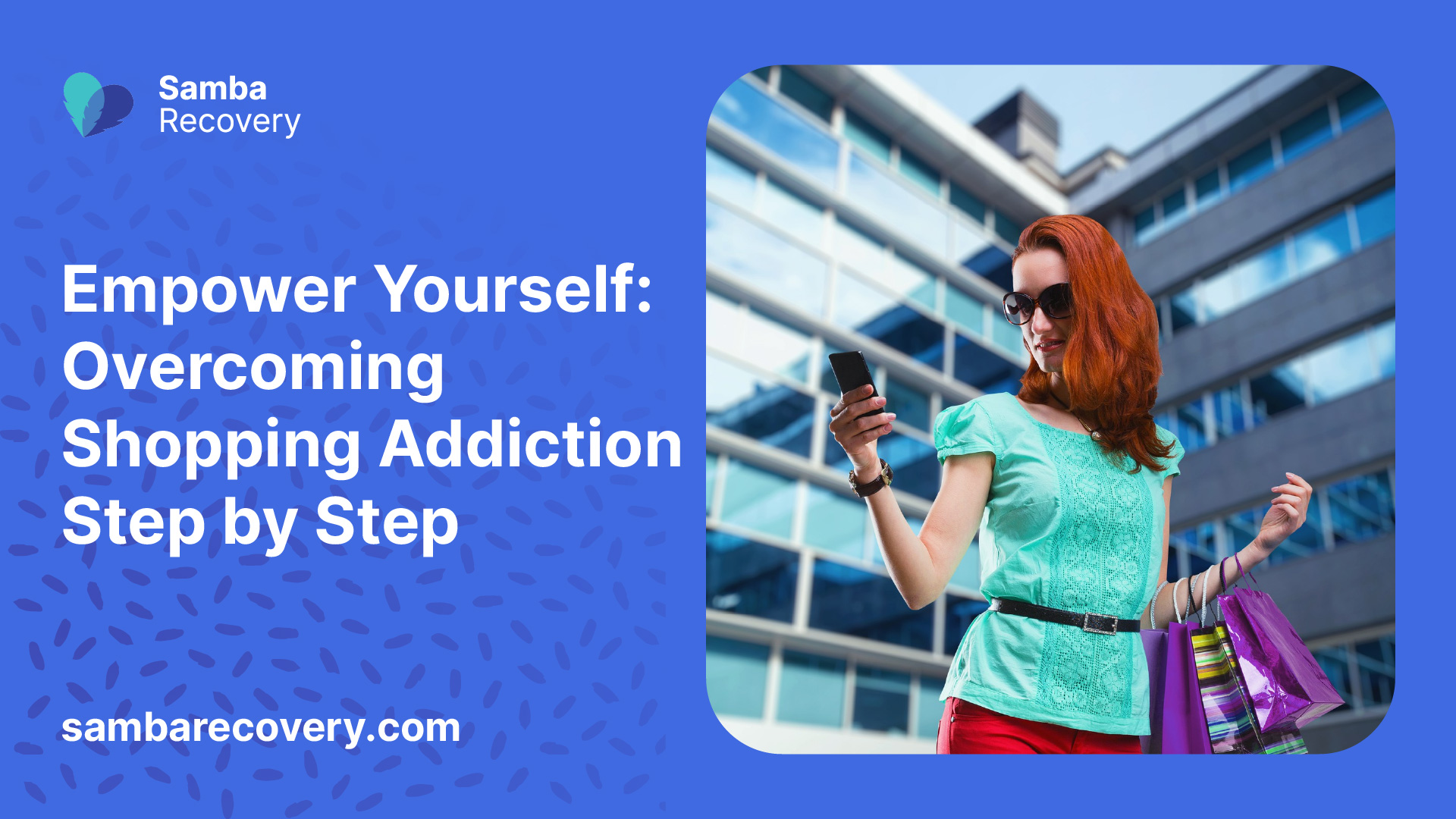
Understanding Shopping Addiction
Definition and Impact
Shopping addiction, also known as compulsive buying disorder, is a behavioral addiction that significantly impacts an individual’s life. This disorder is characterized by an uncontrollable urge to shop, leading to financial problems and serious mental health issues. According to Addiction Help, identifying shopping addiction early can prevent severe financial troubles and emotional distress.
Shopping addiction stimulates the brain’s reward and pleasure centers, similar to the effects of drugs or alcohol. The desire to experience this “high” can lead to compulsive behavior and loss of control. Individuals may find themselves preoccupied with thoughts about shopping and spending money, often hiding their shopping sprees and making excuses for their spending habits [1]. For more on behavioral addictions, see our articles on how to stop phone addiction and how to stop gambling addiction.
Behavioral Aspects
The behavioral aspects of shopping addiction are multifaceted. Compulsive shoppers often experience a temporary mood boost after making a purchase, which reinforces the behavior. This pattern can lead to a cycle of emotional spending to cope with negative feelings such as anxiety and depression.
Behavioral patterns associated with shopping addiction include:
Behavioral PatternDescriptionPreoccupation with shoppingConstantly thinking about shopping and planning purchases.Shopping spreesFrequently engaging in shopping sprees, often beyond financial means.Hiding purchasesConcealing purchases and receipts from loved ones.Emotional aftermathExperiencing guilt or shame after shopping.Emotional escapeUsing shopping to avoid dealing with negative feelings.
These behaviors can have detrimental effects on various aspects of life, including relationships, work, and overall well-being. It is essential to recognize these patterns early and seek help. For strategies on managing addictions, visit our articles on how to stop food addiction and how to stop caffeine addiction.
Understanding the definition and behavioral aspects of shopping addiction is the first step toward overcoming it. By acknowledging the impact and recognizing the signs, individuals can take proactive measures to address their compulsive buying behavior and improve their quality of life.
Signs and Symptoms of Shopping Addiction
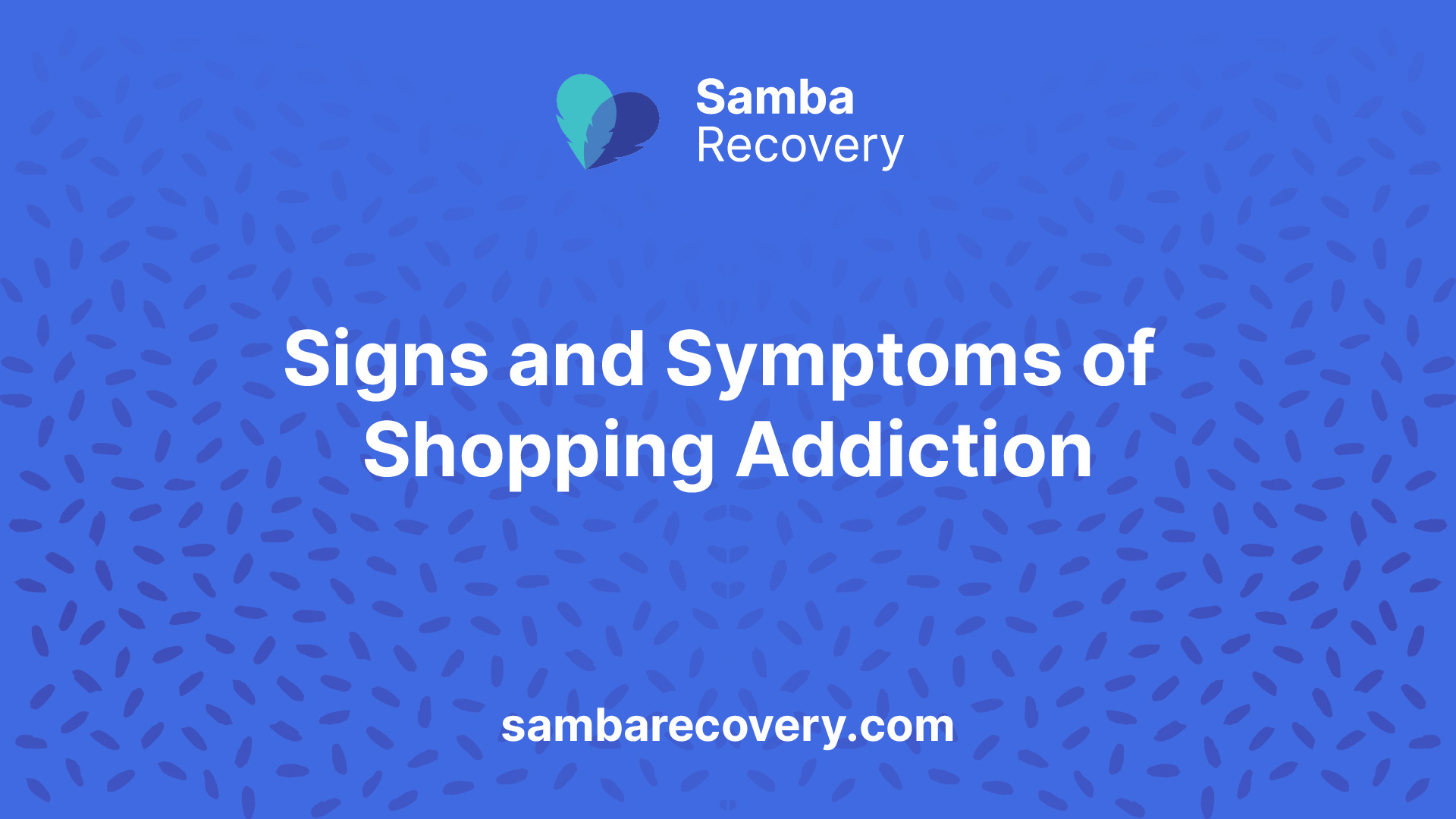
Identifying the signs and symptoms of shopping addiction is crucial in understanding how to stop shopping addiction. Shopping addiction, also known as compulsive buying disorder, can lead to significant financial problems and serious mental health disorders. Recognizing the early indicators can help individuals seek appropriate treatment and avoid detrimental consequences.
Recognizing Compulsive Buying
Compulsive buying is a type of behavioral addiction that stimulates the brain’s reward and pleasure centers, similar to the effects of drugs or alcohol. Individuals with this disorder often experience a “high” from shopping, which can lead to compulsive behavior and loss of control [1]. Key signs of compulsive buying include:
Behavioral Patterns
Understanding the behavioral patterns associated with shopping addiction can help in identifying the disorder. Different types of shopping addictions manifest in various ways, each with its own set of challenges and consequences [1]. Common behavioral patterns include:
Type of Shopping AddictionDescriptionCompulsive ShoppingPersistent and uncontrollable urge to shop, often linked to mood disorders.Impulse BuyingMaking spontaneous purchases without considering the consequences.Bulimic ShoppingEngaging in shopping sprees followed by feelings of guilt and attempts to return items.Bargain-HuntingConstantly searching for deals and discounts, often buying items simply because they are on sale.CollectorsObsessively purchasing items to complete a collection, regardless of necessity.Online Shopping AddictionExcessive online shopping, leading to financial and emotional consequences.
Individuals with shopping addiction may exhibit a combination of these behaviors, making it essential to recognize the patterns early. For those seeking guidance on overcoming shopping addiction, exploring how to stop phone addiction or how to stop gambling addiction can provide additional insights into managing compulsive behaviors.
By understanding the signs and symptoms, individuals can take the first step towards recovery. Seeking professional assistance or joining support groups can provide the necessary tools and support to overcome shopping addiction. For more information on overcoming various addictions, including how to stop food addiction and how to stop caffeine addiction, explore our other articles.
Factors Contributing to Shopping Addiction
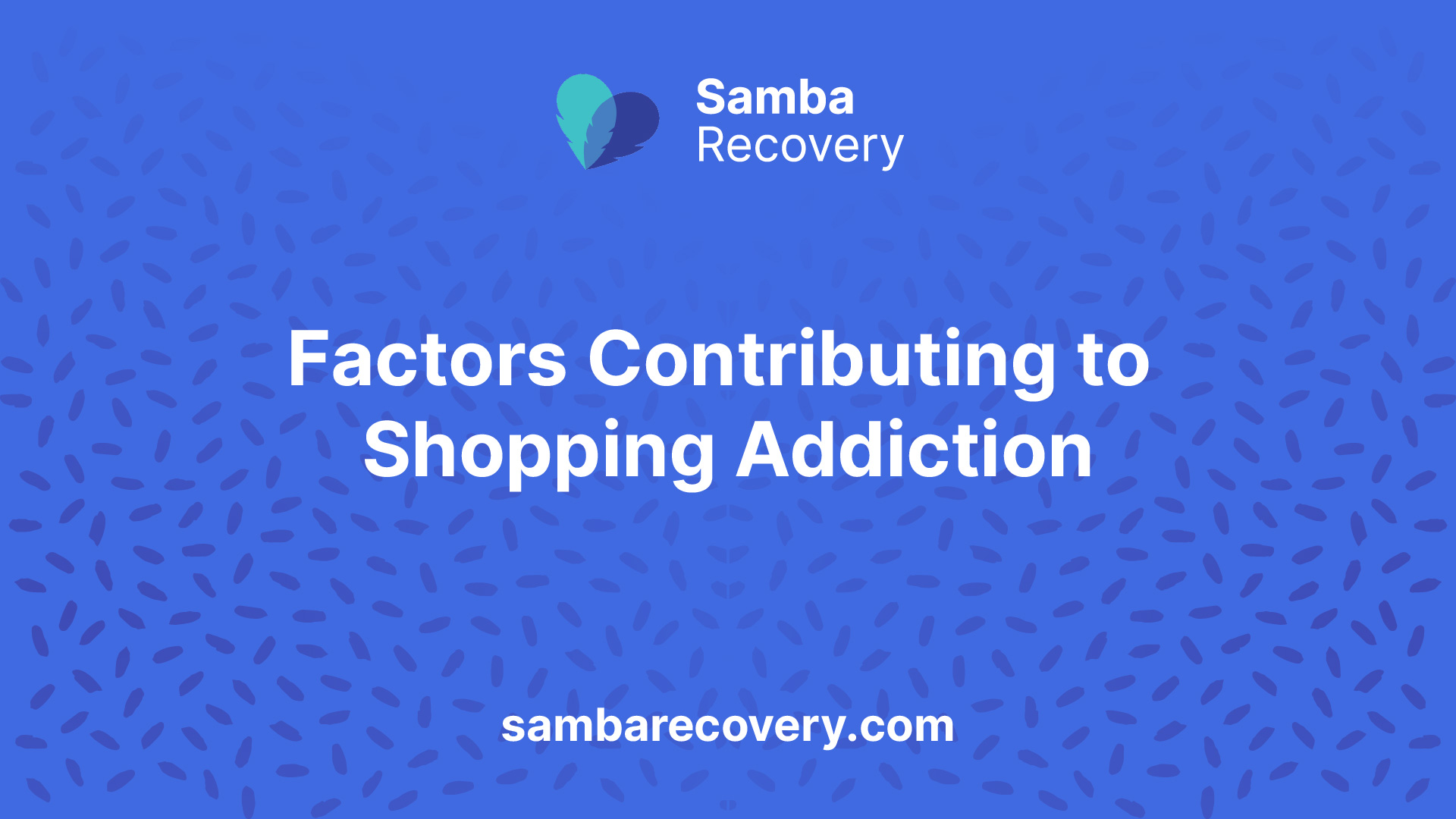
Understanding the factors that contribute to shopping addiction is crucial in learning how to stop shopping addiction. This section delves into the psychological triggers and emotional responses that fuel this compulsion.
Psychological Triggers
Shopping addiction often involves changes in the brain’s reward system, leading to a surge of dopamine that creates feelings of euphoria and reinforcement. Over time, this can result in tolerance, dependence, and withdrawal, making it harder to stop shopping and find satisfaction in other sources of pleasure.
Key psychological triggers include:
Emotional Responses
Emotional responses play a significant role in perpetuating shopping addiction. The cycle of emotional highs and lows can be challenging to break without understanding these underlying factors.
Key emotional responses include:
Emotional ResponseDescriptionEuphoriaTemporary pleasure from shopping, creating a false sense of happiness.DepressionFeelings of sadness when not shopping, often due to reduced serotonin levels.AnxietyStress related to financial instability and guilt towards family.
Understanding these psychological and emotional factors is crucial for those seeking to overcome shopping addiction. By addressing the root causes and learning effective coping mechanisms, individuals can work towards breaking the cycle of compulsive buying. For more insights, explore our articles on how to stop gambling addiction, how to stop food addiction, and how to stop caffeine addiction.
Treatment Options for Shopping Addiction
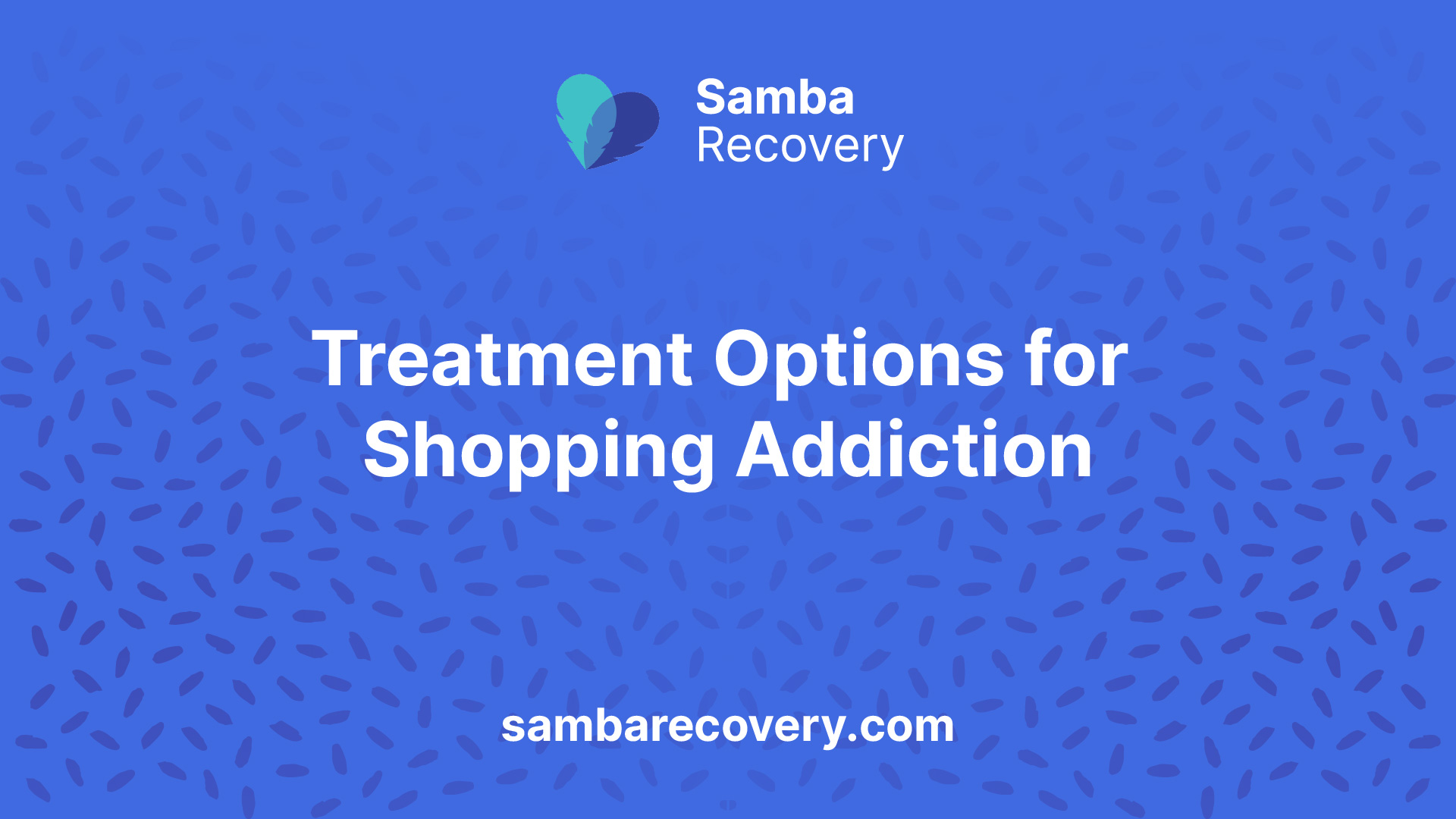
Addressing shopping addiction requires a multifaceted approach. Treatment options include therapeutic strategies and support systems that can help individuals manage and overcome their compulsive buying behaviors. Below are some of the most effective methods for treating shopping addiction.
Therapeutic Approaches
Therapeutic interventions are crucial in treating shopping addiction. One of the most effective therapies is Cognitive Behavioral Therapy (CBT). CBT helps individuals identify and change unhelpful thoughts and behaviors related to shopping addiction. This therapy has shown significant success in treating compulsive shopping disorder [4].
Cognitive Behavioral Therapy (CBT)
Antidepressants
Support and Counseling
Support systems play a pivotal role in the recovery process. These include family therapy, financial counseling, and self-help groups.
Family Therapy
Financial Counseling
Self-Help Groups
Treatment OptionObjectiveMethodEffectivenessCognitive Behavioral TherapyIdentify and change negative thoughts and behaviorsRegular sessions with a therapistHigh success rate in managing compulsive buying behaviorsAntidepressantsAddress underlying mental health conditionsPrescribed by a healthcare provider, usually in combination with therapyHelps manage symptoms of depression or anxietyFamily TherapyProvide a supportive environment and address family dynamicsSessions with a therapist alongside family membersPromotes understanding and collective effort in overcoming the addictionFinancial CounselingHelp manage finances effectivelyWorking with a financial counselor to develop budgeting and financial management skillsReduces financial stress and helps in gaining control over spending habitsSelf-Help GroupsProvide a community of support and shared experiencesParticipation in groups like Debtors Anonymous and Spenders AnonymousOffers encouragement, resources, and coping strategies to manage compulsive buying behavior
For more information on overcoming various addictions, consider reading our articles on how to stop phone addiction, how to stop gambling addiction, and how to stop food addiction.
Overcoming Shopping Addiction
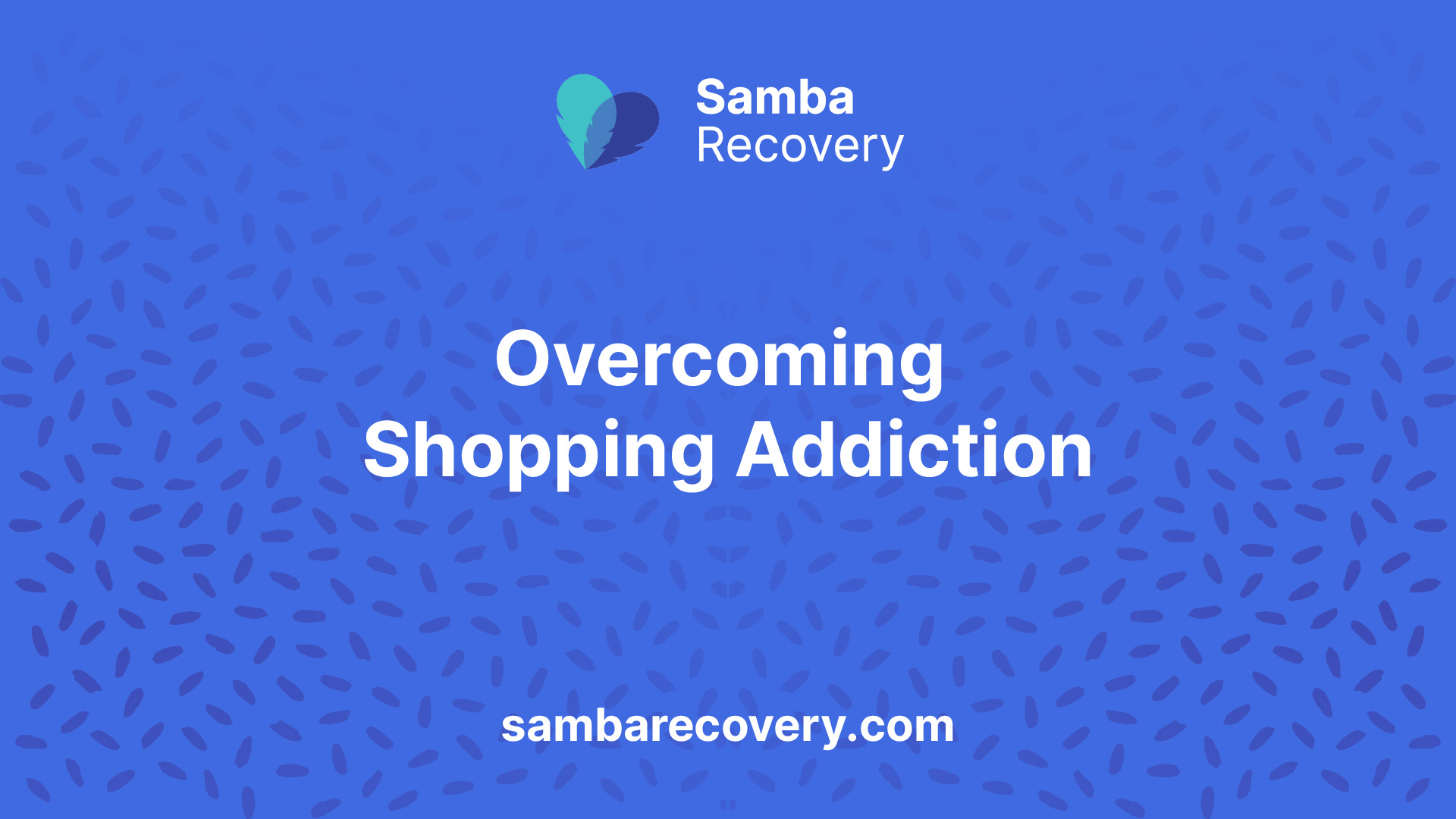
Overcoming shopping addiction, also known as compulsive buying disorder, requires a multi-faceted approach. It’s essential to develop effective coping mechanisms and find healthy alternatives to replace the urge to shop.
Coping Mechanisms
Effective coping mechanisms can help individuals manage the triggers and emotions associated with shopping addiction. Here are some strategies:
Coping MechanismDescriptionSet GoalsCreate a budget and limit shopping timesIdentify TriggersRecognize emotional or situational triggersDevelop HobbiesEngage in productive activitiesMindfulnessPractice mindfulness and meditationSeek SupportJoin support groups for accountability
Healthy Alternatives
Finding healthy alternatives to shopping can help replace the compulsive behavior with more constructive activities. Here are some options:
Healthy AlternativeDescriptionVolunteeringGive back to the communityExerciseEngage in physical activityCreative OutletsPursue creative hobbiesSocial ActivitiesSpend time with loved onesProfessional HelpSeek therapy and counseling
By implementing these coping mechanisms and healthy alternatives, individuals can take significant steps towards overcoming shopping addiction. For more information on managing different types of addictions, visit our guides on how to stop phone addiction, how to stop gambling addiction, and how to stop food addiction.
Resources for Recovery
Support Groups
Joining a support group can be a crucial step in overcoming shopping addiction. Self-help groups like Debtors Anonymous and Spenders Anonymous provide support, encouragement, and resources to help individuals gain insight into their addiction, identify triggers, develop coping techniques, and take control of their compulsive buying behavior.
Another valuable resource is the Shopping Addiction Support Group, an online community with over 35,000 members. This group allows individuals to share their experiences, receive advice, and find support from others who understand the challenges of compulsive shopping [6].
Support GroupKey FeaturesLinkDebtors AnonymousDebt management, peer supportDebtors AnonymousSpenders AnonymousBudgeting, coping techniquesSpenders AnonymousShopping Addiction Support GroupOnline community, shared experiencesSupport Group
Professional Assistance
Professional assistance can provide additional support and guidance for those struggling with shopping addiction. Programs like Stopping Overshopping, founded by April Lane Benson, PhD, offer comprehensive services including self-help programs, private coaching, and group coaching. These programs utilize various tools such as coaching sessions, journals, videos, and an app to help individuals control their compulsive buying behaviors [6].
Professional AssistanceServices OfferedLinkStopping OvershoppingSelf-help program, private coaching, group coachingStopping Overshopping
Additionally, therapeutic approaches such as Cognitive Behavioral Therapy (CBT) can be highly effective. CBT helps individuals identify and change unhelpful thoughts and behaviors associated with shopping addiction. In some cases, antidepressants may also be prescribed to address underlying mental health conditions contributing to compulsive buying.
By leveraging these resources, individuals can find the support and guidance they need to overcome shopping addiction. For more information on overcoming other forms of addiction, you can explore our articles on how to stop phone addiction, how to stop gambling addiction, how to stop food addiction, and how to stop caffeine addiction.
References
[2]:
[3]:
[4]:
[5]:
[6]:






